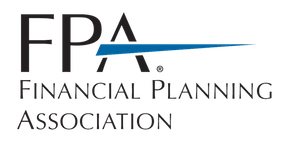
What’s Your Plan? When To Start and Update Your Financial Plan
There’s an old saying floating around in the ether: “If you don’t have a plan, you plan to fail.” Nobody knows who said it first, but it hits harder than a morning alarm on Monday.
Read the Sonmore Financial blog to get our team’s take on the most pressing financial tips, trends, and questions.

There’s an old saying floating around in the ether: “If you don’t have a plan, you plan to fail.” Nobody knows who said it first, but it hits harder than a morning alarm on Monday.

Imagine a life where the constraints of a 9-to-5 job are a thing of the past, and your time is entirely your own. This is the allure of early retirement.

In an era where career fluidity is the norm, the decision to switch jobs is not always simple. While the allure of a higher salary often steers this decision, benefits like equity compensation, health insurance, and retirement plans also play a critical role.

When planning for retirement, understanding the full spectrum of savings strategies available within your 401(k) can significantly impact your financial future. Beyond the well-known pre-tax and Roth contributions, after-tax contributions present an opportunity to further maximize your retirement savings.

Tax law is constantly changing, and what was true just a few years ago with the SECURE Act may not be true today with the passing of SECURE 2.0. However, there is one key factor that determines when an Individual Retirement Account (IRA) requires minimum distributions or RMDs must be taken and it plays a role in determining the best plan of action—the type of beneficiary.

It is both delightfully simple and genuinely compelling to be able to summarize the behavior of the equity markets, not only in the calendar year just ended but over the last two years. I can in fact do it in two sentences:

As you approach the empty nest phase of life, a new chapter begins. It’s a time filled with emotional and financial changes that will likely reshape your daily life and long-term plans. This period often brings a mix of relief, nostalgia, and anticipation for what’s ahead.

The holiday season is a special time for reflection and generosity, particularly meaningful for retirees. It’s an opportunity not just to give back to the community but also to strategically align charitable efforts with financial planning. This can enhance both personal fulfillment and financial health. The act of giving, in its various forms, offers a unique blend of emotional satisfaction and practical benefits well summarized in Winston Churchill’s quote: “We make a living by what we get. We make a life by what we give.”

Tax planning is a critical aspect of financial management, especially for those entering retirement. It’s about understanding and applying strategies to help minimize tax liabilities and maximize income throughout your golden years. As a retiree, the decisions you make regarding your income can significantly impact your financial health. But what does tax planning really mean for someone who is no longer in the workforce?

Retirement isn’t just about reaching a certain age; it’s about achieving financial independence. Early retirement, a goal many aspire to, requires meticulous planning and informed decision-making. From navigating healthcare before Medicare eligibility to understanding the intricacies of retirement distributions, delaying Social Security, and leveraging income tax gap years, there’s much to consider. Let’s explore these critical aspects to help you pave a smooth path toward early retirement.

We feel in the tumultuous dance of investing, two partners lead the waltz: the emotional and the intellectual. The quintessence of successful investing lies in the harmony between these two. Nick Murray once stated, “The investor’s chief problem—and even his worst enemy—is likely to be himself.”

If you’re nearing age 65, working, and eligible for employer-provided health benefits, you may be wondering how it all fits with Medicare. Guest writer Dyan Collette answers some of the most common questions that surround applying for Medicare benefits while also qualifying for health insurance coverage through your job.

ThinkAdvisor has recognized Matthew Benson, CFP®, Owner of Sonmore Financial, in the LUMINARIES Class of 2023. As one of only eight named to the Community Impact category for Individual Registered Investment Advisors, Benson was chosen for his philanthropy within the financial services industry.

We pride ourselves on being a stoic leader for our clients; one who can speak logic into emotions when times are better than normal, as well as when times are worse than normal.

What are digital assets and why are they so important? Why do they need to be protected and what laws exist to protect them? Below, you can find the answers to these questions and many more in this guest article by the Arizona estate planning attorneys at Guidant Law Firm.

The largest expense many professionals will have in retirement is taxes. No matter how patriotic you might be, I’m sure we would both jump at the opportunity to minimize our lifetime tax bill. In order to help accomplish this goal, it’s important to understand what tools we have available to shelter dollars from tax, how those tools are taxed, and when it makes sense to use each one.

The largest expense many professionals will have in retirement is taxes. No matter how patriotic you might be, I’m sure we would both jump at the opportunity to minimize our lifetime tax bill. In order to help accomplish this goal, it’s important to understand what tools we have available to shelter dollars from tax, how those tools are taxed, and when it makes sense to use each one.

The largest expense many professionals will have in retirement is taxes. No matter how patriotic you might be, I’m sure we would both jump at the opportunity to minimize our lifetime tax bill. In order to help accomplish this goal, it’s important to understand what tools we have available to shelter dollars from tax, how those tools are taxed, and when it makes sense to use each one.

The largest expense many professionals will have in retirement is taxes. No matter how patriotic you might be, I’m sure we would both jump at the opportunity to minimize our lifetime tax bill. In order to help accomplish this goal, it’s important to understand what tools we have available to shelter dollars from tax, how those tools are taxed, and when it makes sense to use each one.

The largest expense many professionals will have in retirement is taxes. No matter how patriotic you might be, I’m sure we would both jump at the opportunity to minimize our lifetime tax bill. In order to help accomplish this goal, it’s important to understand what tools we have available to shelter dollars from tax, how those tools are taxed, and when it makes sense to use each one.

Whether you are buying a house, retiring, up-sizing, down-sizing or smart-sizing, your insurance needs will change. In this guest article by Aaron A. Anderson, Vice President of Personal Lines at Strong Tower Insurance Group, we outline the most common insurance products and why it is important to update them as you move through life.

Does it make sense to pay tax today in order to lower your lifetime tax liability? The answer is, it depends. There is a lot to consider when it comes to converting some of your pretax dollars to Roth. And, if after reviewing all your options, it might not make sense for you to do a Roth conversion today, it might be a good strategy in future years.

We have all been to a restaurant with a menu that looks like an encyclopedia and, instead of feeling glad we have options, we are frustrated because we don’t know what to order. In a similar way, employers have begun to offer increasingly diverse employee benefits that can be more confusing than helpful. Of course, we will not complain about an employer’s generously diverse benefits, but if we had to prioritize certain employee benefits and determine which ones can give us the biggest bang for our buck, which ones would we prioritize and how would we optimize them for our financial plan?

One of the most common objectives, as it relates to financial planning, is planning for retirement. The question often comes up: “Do I have enough for retirement?” or “How do I know if I have enough for retirement?” Long gone are the days where you could work for a company and draw your pension and Social Security for the rest of your life. In today’s environment, you need to factor in the optimal filing strategy for Social Security after many proposed changes to the program over the last 30 years and several implemented with more likely on the horizon. You also need to figure out which accounts you will draw from and, most importantly, you need to determine what is an appropriate amount to save towards.

Tax and planning are words that are not typically associated together. Oftentimes, people think about taxes and conclude; “you just have to pay them” or “there is nothing you can do about it”. That, of course, is not true. If you can look at your taxes beyond a 12-month period of time, several planning opportunities exist to help lower your lifetime tax. In high marginal tax years, the objective is to lower your taxable income. In low marginal tax rate years, the objective is to accelerate income.

For some, funding college is one of the most daunting tasks of our era. The cost of advanced education is ever-increasing, and any form of assistance is well-received. Thankfully, there are ways to plan for these costs and take advantage of scholarships and resources. What we have found is that the most important factors in navigating university in a cost-efficient manner are school choice, knowing what you want, and sticking to the plan. This is a case study of a client’s child:

Several financial concepts can be simplified to the familiar lemonade stand. Compound interest is no different. It’s an elementary level concept where the earnings that your investments create then start creating their own earnings. To use the lemonade stand analogy, you use your profits from the lemonade stand and open a new lemonade stand, which then creates more profits. The same is true as it relates to traditional investments like mutual funds and stocks. The concept of compound interest is simple, but truly understanding it can be quite complex.

The SECURE Act 2.0 has brought a myriad of changes to many aspects of retirement savings. The act increases several contribution limits, allows for previously allowed transactions such as rolling over 529 funds into a Roth IRA, alters the rules of Required Minimum Distributions, and much more. Like any change in tax law, it also presents new planning opportunities. The changes covered are by no means comprehensive, but rather the ones we view to be most significant for individuals and families who are particularly intentional with their retirement savings. The changes are broken down into categories most relevant to pre-retirees vs. retirees and those that affect everyone to a relatively equal extent.

The year of 2022 saw the beginning of highest inflation our country has seen in 40 years. To combat this inflation, you saw the Fed raise rates 7 times, increasing rates 4.25% over the past 12 months. As always, financial media had you on the edge of your seat, begging you to abandon your long-term, goal-focused strategy at the latest news.

During this Holiday Season, consider giving the gift that truly never stops giving, financial literacy. Whether you’re 8 or 80 years old, there is always something new you can learn about finance that can help you advance. You are already doing your part in achieving your own financial literacy if you are reading this and subscribed to our blog and newsletter, receiving financial content straight to your screen twice a month. In what follows, we’ll highlight a few gift ideas around financial literacy that you can gift the people you love, who may be at various stages of their lives

One of the biggest concerns early retirees have is paying for health insurance. The Affordable Care Act gave rise to The Premium Tax Credit (PTC), which can be a helpful tool to address this gap between retirement and Medicare at age 65. If you do the proper planning, you may be able to qualify for discounted health insurance before age 65. In this post, we discuss what the Premium Tax Credit is and how you can strategize your retirement income to qualify.

As the close of 2022 draws near, now is a great time to review financial strategies that may be beneficial to your wealth plan. Today we present a guest article looking more closely at end of year planning by Nathan Wilding, Tax Accountant at Fox Peterson Entrepreneurial Accountants in Mesa, Arizona.

Most investors know that using a company-sponsored retirement plan can be a great tool for tax efficiency. On pretax contributions to these plans, one drawback is that all of the distributions are taxed as ordinary income. However, in some circumstances, there are even further tax efficiencies when using company stock in a company-sponsored retirement plan or employee stock ownership plan (ESOP).

A great advisor has a bear market plan that helps turn an unfortunate time period into a period of opportunity. A great advisor helps clients go from bear market victims to victors. Here are five components of our bear market plan.

Charitable giving is a lot like the phenomenon of compound interest. Much like compound interest, charitable acts multiply exponentially until we can no longer keep track of them. The good nature behind charitable giving should be the primary motive to do it, but it can also be done efficiently in a manner that not only earns a notable tax benefit, but allows the charity to receive more dollars as well.

There are many factors that go into discerning a job switch. Having a clear reason behind switching jobs is the most important piece because it helps you to align with the benefits you should be looking for. If the catalyst for making a switch is compensation-based, you might be more compelled by a job that offers equity compensation or phantom stock instead of the most comprehensive health insurance plans.

Nobody likes a down market, but what a pullback can uncover is an opportunity to re-focus on what you can control. Implementing tax-efficient strategies while investing is a big one. Today we present a guest article looking more closely at the tax side of things by Nathan Wilding, Tax Accountant at Fox Peterson Entrepreneurial Accountants in Mesa, Arizona.

Joe Boison, Sonmore’s Operations and Administrative Manager, recently embarked on a trip to Northern Arizona. Here he reflects on some of the magical experiences that the region has to offer and even shares a couple of financial lessons learned along the way! Arizona, the 48th state in the union, is

It’s no secret that higher education is expensive, and the price tag continues to grow. In fact, college tuition has risen about 8% per year on average, meaning it doubles every 9 years. As such, the longer one has to save and prepare to take on this expense, the better

One of the most appealing aspects of being an entrepreneur is that there is virtually no cap to how much you can earn. However, entrepreneurship can also present tax complications. In this two-part series, we will share both income tax and capital gains tax strategies to help you keep more

Being self-employed comes with a lot of benefits. You have the ability to be your own boss, set your own hours, and make your own decisions. However, self-employment also has its challenges. One of the biggest challenges is managing your finances. When you are self-employed, your income can vary greatly

Equity compensation can have a significant impact on your financial situation. On the one hand, it can accelerate the achievement of your financial goals. For example, if you receive equity compensation in the form of stock options, you may be able to exercise those options and sell the underlying shares

As a professional, you have worked hard to prepare for retirement. Bolstering savings, paying down debt, building up cash, and making sure all of your financial affairs are in order…it’s a lot. Unfortunately, the environment you retire into can have a big impact on your retirement savings.

If you have paid attention at all during the last 12 months, you surely have heard the word inflation come up on more than one occasion. And as inflation is double what it has been for most of the last 10 years, it’s not surprising that it’s such a popular

Not running out of money during retirement is a financial goal. Outperforming the market on the other hand, is not a financial goal. In the words of Nick Murray, “If I ‘outperform’ my neighbor by 3% in the 20 years to retirement such that he runs out of money when

“It’s not about what you earn, it’s about what you keep.” How many of us have heard that saying? Personally, I think it should be revised to “It’s not about what you earn, it’s about what you keep. But it always helps to earn more”. As Dave Ramsey says, “Personal

So, you’ve received your annual bonus, an inheritance, or a lump sum of cash that you’re looking to contribute to your financial picture. Now what? If you find yourself in this situation, you should begin by looking at your overall financial picture. Is there debt you could pay off? A

Here we are again the annual fundraiser for Uncle Sam. Some call it rent to live in America. However you like to look at it, apparently it’s one of the only sure things in life along with death. The question is: What can you still do to positively impact your

So your company offers a retirement plan for its employees. That’s fantastic! But why should YOU put money away into it? You’ve probably heard both good and bad things about your plan. In what follows I’ll answer a few of the objections to investing in your company sponsored retirement plan

Warren Buffet is regarded by many to be the greatest mind in finance ever and even more would say of this generation. His influence extends even beyond the world of finance. During his annual shareholders meeting he is known to be a quote machine. Below are a few that can
Check the background of your financial professional on FINRA’s BrokerCheck.
The content is developed from sources believed to be providing accurate information. The information in this material is not intended as tax or legal advice. Please consult legal or tax professionals for specific information regarding your individual situation. The opinions expressed and material provided are for general information, and should not be considered a solicitation for the purchase or sale of any security.
Advisory services offered through Sonmore Financial, LLC, a Registered Investment Advisor in the state of Arizona.




